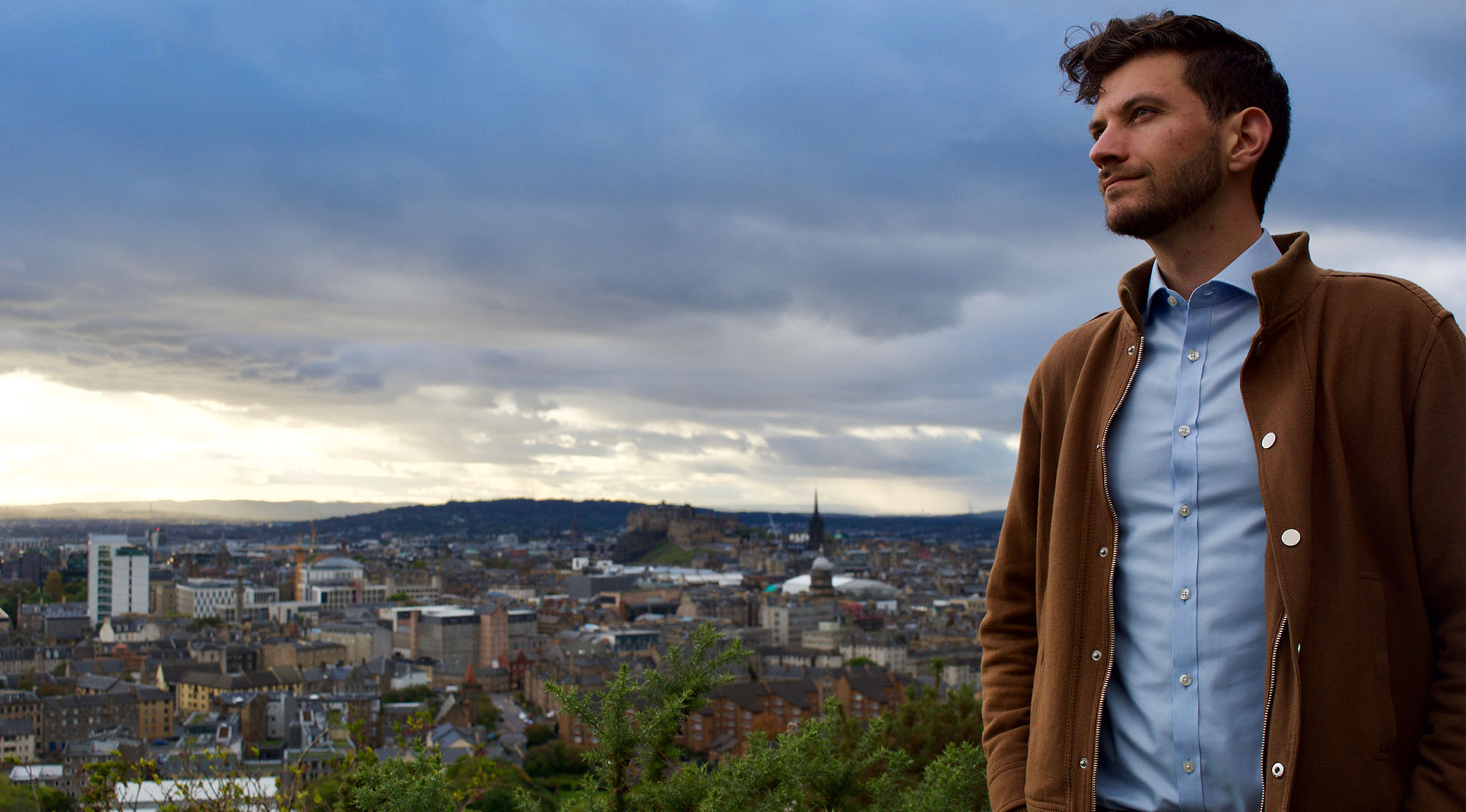About Will McInerney
Will likes challenges. That is why he originally decided to do electrical and civil engineering – the hardest program his university offered. However, that spark that gets the engine running was missing. Balancing numbers with words, he turned to poetry and discovered not only who he was, but also who he wanted to be and, as it turned out, that was not an engineer. Thus, it was time to change gears and study peace and conflict rather than working for a power company. His passion for poetry and his commitment to peacebuilding acted as an exponential function and soon he was a poet, a journalist as well as an educator, supporting others in their own personal development through spoken word poetry. His experiences in these different fields led him to focus on young men. After multiple years as a practitioner working with youth and young men in particular, he realized there were certain recurring obstacles he could not overcome and decided to find the answers to them through scholarship. Eventually, this brought him to doing a PhD in Cambridge while continuing his work as an educator such as, most recently, teaching a Master Class on poetry, gender and peace at KOFF.
Engaging Young Men
Throughout the years and through his different roles mentioned above, he discovered what he calls the “pattern of he”. Whether he was covering conflict areas as a journalist or working with youth, the issue at hand was violence and he learned that it was disproportionally violence committed by men. Hence, it seemed obvious to him that, if he wanted to contribute to a more peaceful society, he needed to focus on those who were often making it a less peaceful place. His focus thus shifted from youth in general to young men. It is crucial to stress that while most violence is committed by men, most men are not violent in its most direct form.
“Certainly, not all men commit violence, certainly women and gender non-conforming people do commit violence and men are certainly also the victims of violence; but men are disproportionally within the category of perpetrators of violence based on our understanding of data and that is a globally consistent phenomena.”
Nevertheless, Will sees a particular responsibility lying upon all men. On the one hand because there is no strict dichotomy between good and bad guys; refraining from direct forms of violence against women but remaining silent when witnessing others commit (in)direct violence makes one complicit. On the other hand, gender inequalities in a patriarchal society are intrinsically linked to privileges accorded to the men of this society. Men thus hold a powerful position in this context regardless of their personal preferences and therefore have an important responsibility.
“I am getting away from the dichotomy of ‘good’ guys and ‘bad’ guys […].Not hitting people is not good enough, we have a higher standard, we believe that men can, should and will live up to that.”
Towards a more just and equal society
Striving towards a more equal and just society in terms of gender thus means fundamentally challenging rigid gender norms and recognizing that, while this entails losing some privilege, a shift in paradigm also benefits men. Current prevalent interpretations of masculinity, known as dominant, hegemonic or toxic, contribute in part to men living shorter lives, doing worse in school and having higher suicide rates. In contrast, moving towards alternative, peaceful or feminist masculinities allows for more complex and nuanced senses of identity. Essentially, being “disloyal to patriarchy“ means fighting for a world where men will lose some of their unearned privileges, but could live healthier and happier lives.
Achieving such a paradigm shift is a long process and, according to Will, a creative process. Poetry can help young men imagine alternative masculinities. It is a means to develop a personal blueprint for what positive masculinities could look like based on one’s individual life experiences. However, he also emphasizes the importance of young men understanding masculinities as going beyond the personal sphere. They rather should be understood as practices that operate personally, relationally, structurally, materially and discursively.
“Peaceful masculinities are creative masculinities. In order to foster change, we have to engage in creative critical work to reimagine, transcend and disrupt rigid and violent masculinities as well as rigid and violent gender orders.”
While Will stresses repeatedly that it is not women’s job to lead men in this debate, it is nonetheless vital to include their perspectives. He considers men’s place in this conversation as one that needs to be negotiated and built with care. Due to women’s past and present experiences with violent masculinities as well as their work of trying to counter these gendered norms, they can provide valuable insight on these issues, help shape this conversation and continue to hold men accountable.
In essence, the key message Will is trying to convey to young men is: It is very simple and very complex at the same time. While it is simple to understand that we need to work towards a less violent, more just and equal world, envisioning possible ways to achieve this rapidly becomes highly complex. That does not mean, however, one should not try.
“I have no delusions about the fact that I am a very, very small gear in a very, very large complicated machine; but I am that gear and the question is what am I going to do? I want to use that to try to make a positive contribution and to be part of communities, systems, cultures and structures that are also part of this change.”


